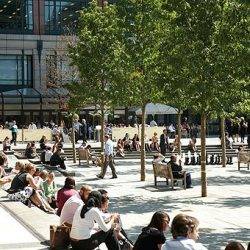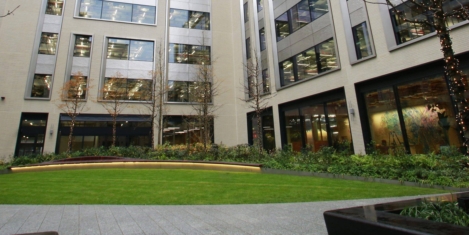July 10, 2018
Employers welcome multi-generational workforce but worry about increased risk of conflict
 Improved living standards, deflating pension pots and legal protection against age discrimination have all helped to nudge up the retirement age. The result is that for the first time since the Industrial Revolution five generations of employees are now working side by side. According to a new survey, two thirds of organisations (66 per cent) say that an age diverse workforce helped the company to have a more comprehensive skillset and knowledge base and more than seven in ten (71 per cent) felt that a multi-generational workforce brought contrasting views to their organisation. However, in the YouGov survey of middle market businesses commissioned by RSM, four in ten companies (41 per cent) said that a multi-generational workforce also increased the risk of conflict in the workplace. More →
Improved living standards, deflating pension pots and legal protection against age discrimination have all helped to nudge up the retirement age. The result is that for the first time since the Industrial Revolution five generations of employees are now working side by side. According to a new survey, two thirds of organisations (66 per cent) say that an age diverse workforce helped the company to have a more comprehensive skillset and knowledge base and more than seven in ten (71 per cent) felt that a multi-generational workforce brought contrasting views to their organisation. However, in the YouGov survey of middle market businesses commissioned by RSM, four in ten companies (41 per cent) said that a multi-generational workforce also increased the risk of conflict in the workplace. More →










 The majority (82 percent) of employees have ideas about how their company can help improve the business claims a new survey, but over a third (34 percent) say their ideas are being ignored by their employers. The findings were announced alongside the launch of Sideways 6’s inaugural State of Employee Ideas report, which explores how employees at all levels, at businesses of all sizes, all over the world feel their company treats their ideas also reveals that 39 percent of females felt that their ideas are not being listened to, compared to 30 percent of males. Interestingly, despite the number of ideas they have, many employees remain fearful of voicing them. According to the findings, one fifth (18 percent) of those same ideas are never heard because employees are afraid to put them forward. The results also identified a clear disparity in levels of confidence to put forward ideas between younger and older employees. When surveyed, 64 percent of senior level employees strongly agreed that they have ideas and aren’t afraid to voice them, compared to 42 percent junior level employees.
The majority (82 percent) of employees have ideas about how their company can help improve the business claims a new survey, but over a third (34 percent) say their ideas are being ignored by their employers. The findings were announced alongside the launch of Sideways 6’s inaugural State of Employee Ideas report, which explores how employees at all levels, at businesses of all sizes, all over the world feel their company treats their ideas also reveals that 39 percent of females felt that their ideas are not being listened to, compared to 30 percent of males. Interestingly, despite the number of ideas they have, many employees remain fearful of voicing them. According to the findings, one fifth (18 percent) of those same ideas are never heard because employees are afraid to put them forward. The results also identified a clear disparity in levels of confidence to put forward ideas between younger and older employees. When surveyed, 64 percent of senior level employees strongly agreed that they have ideas and aren’t afraid to voice them, compared to 42 percent junior level employees.








 The majority of employees are disappointed with their company’s lack of investment in technology, and despite the fact three quarters (76 percent) want to request flexible working – almost half still don’t have the option of working more flexibly, a new report from a technology company claims. According to the survey by technology company Ingram Micro Cloud UK, in collaboration with technology company Microsoft, despite the fact that Millennials and Centennials are often thought to be the driving force behind changing workplace practices – and are often derided in popular discourse for having unreasonable and unrealistic expectations – the calls for change are coming from all segments of the workforce. However, 85 percent of Millennials admit to procuring their own workplace technologies such as instant messaging, Skype, file hosting and sharing tools (all available from Ingram Micro Cloud) that aren’t supported or provided by their employer, which raises major security issues, acco.
The majority of employees are disappointed with their company’s lack of investment in technology, and despite the fact three quarters (76 percent) want to request flexible working – almost half still don’t have the option of working more flexibly, a new report from a technology company claims. According to the survey by technology company Ingram Micro Cloud UK, in collaboration with technology company Microsoft, despite the fact that Millennials and Centennials are often thought to be the driving force behind changing workplace practices – and are often derided in popular discourse for having unreasonable and unrealistic expectations – the calls for change are coming from all segments of the workforce. However, 85 percent of Millennials admit to procuring their own workplace technologies such as instant messaging, Skype, file hosting and sharing tools (all available from Ingram Micro Cloud) that aren’t supported or provided by their employer, which raises major security issues, acco.
 Employers with over 250 employees are more likely to have a significant absence issue among staff says new research from Group Risk Development (GRiD). According to HR decision makers companies with over 250 employees have the highest absence rates – averaging 7.5 days per year yet micro businesses with between 1-9 staff only see their staff take an average of 2.8 days absence per year. Five per cent of HR decision makers also admitted to not recording or monitoring absence at all, although this is more prevalent amongst SMEs (6 percent) than those with over 250 employees (1 percent).
Employers with over 250 employees are more likely to have a significant absence issue among staff says new research from Group Risk Development (GRiD). According to HR decision makers companies with over 250 employees have the highest absence rates – averaging 7.5 days per year yet micro businesses with between 1-9 staff only see their staff take an average of 2.8 days absence per year. Five per cent of HR decision makers also admitted to not recording or monitoring absence at all, although this is more prevalent amongst SMEs (6 percent) than those with over 250 employees (1 percent). 
















July 6, 2018
A storm brewing around the workplace and facilities management
by Cathy Hayward • Comment, Facilities management, News, Workplace design